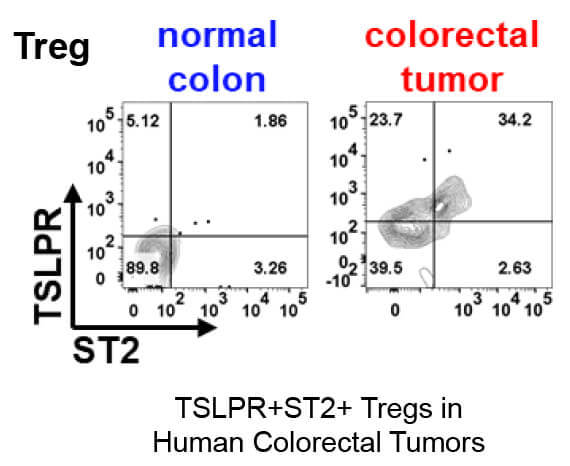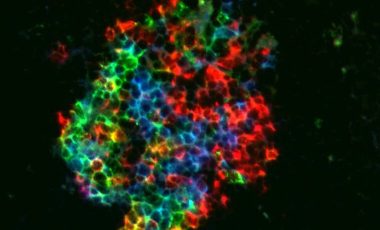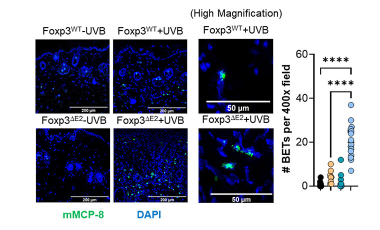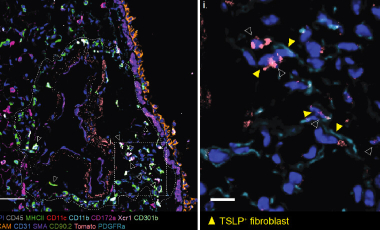Colorectal cancer (CRC) is the second most common cause of cancer-related deaths in the world. In the US, CRC is the third most common cancer, affecting 1-2% of the adult population. Importantly, treatments have not been sufficient for all the patients with CRC to recover, immune checkpoint inhibitors (ICIs) are effective only for less than 5% of patients, demonstrating the need for additional therapeutics.
We recently discovered a novel subset of regulatory T cells (Tregs) that co-express the receptors for TSLP and IL-33 (TSLPR+ST2+ Tregs) in tumors, but not uninvolved colon, from patients with CRC. Using mouse models, we showed that loss of TSLP signaling by these Tregs led to dramatically reduced tumor progression, as did treatment with a neutralizing anti-TSLP antibody.
This TSLPR+ST2+ Treg has the potential to be a diagnostic marker (as we find this subset in blood of CRC patients) and a therapeutic target for colorectal cancer. We are now studying the development and function of this novel Treg subset in the context of colorectal cancer.

Additional Research Projects

Regulation of Humoral Immunity by Thymic Stromal Lymphopoietin
Cell-intrinic regulation of germinal centers by Thymic Stromal Lymphopoetin Receptor (TSLPR) signaling

Study of Foxp3ΔExon2-expressing regulatory T cells in humans and mice
Characterization of IgE-mediated photosensitivity in Foxp3ΔExon2-expressing mice

The role of TSLP and IL-33 in tissue homeostasis and inflammation
The Ziegler lab is investigating how TLSP and IL-33 signaling at adventitial sites in the lungs and skin maintain tissue immune homeostasis and regulate inflammation and tissue repair.


